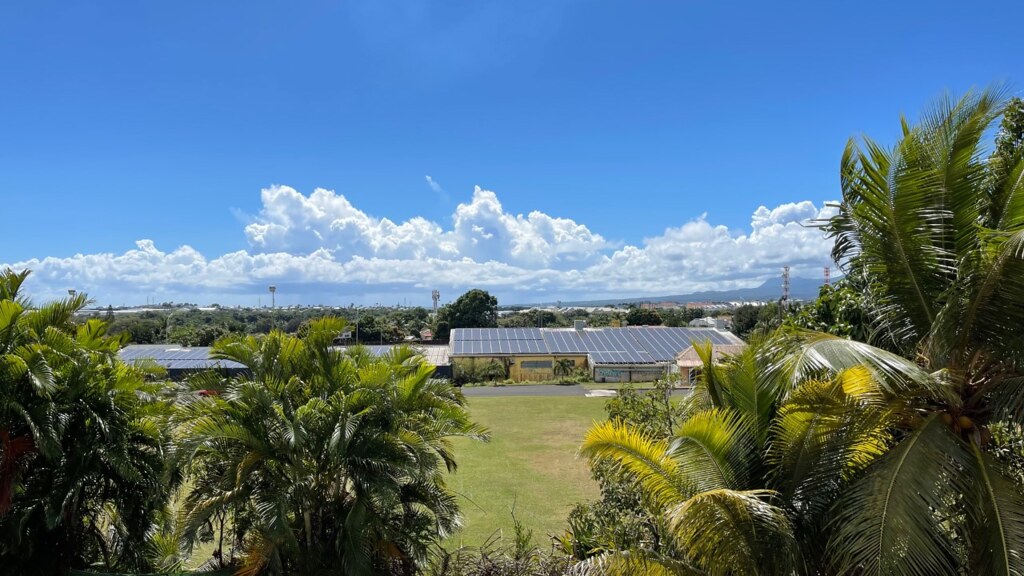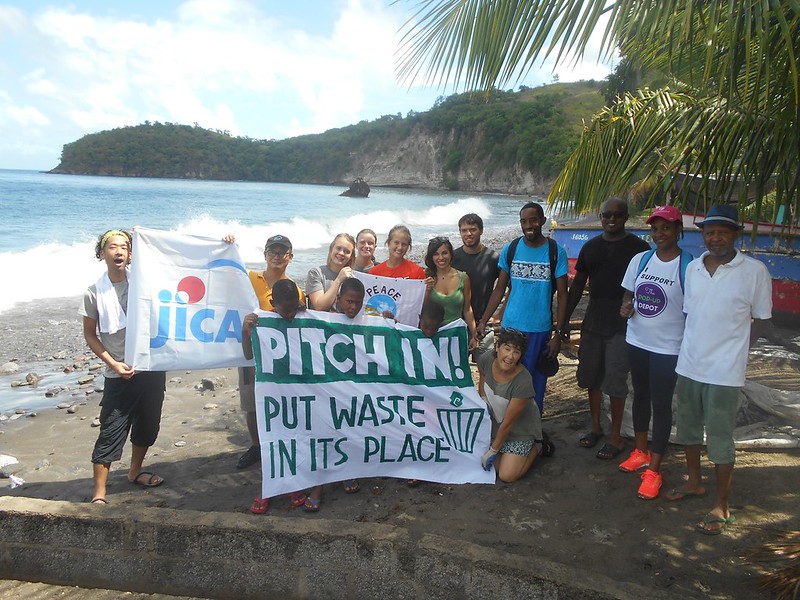Adapting to climate change in the Caribbean: Expert viewpoint from Donovan Campbell

Dr Donovan Campbell is a Lead Author of the ‘Small Islands’ chapter in the Intergovernmental Panel on Climate Change’s Working Group II report on Impacts, Adaptation and Vulnerability to Climate Change. He is also a Senior Lecturer at the University of West Indies – Mona campus (Jamaica). Dr Campbell talked to CASA’s Mairi Dupar about the complexities of adapting to climate change in the Caribbean and how climate finance is critical.
The IPCC’s Sixth Assessment Report (AR6) calls for more comprehensive adaptation to climate change. In a nutshell, what is adaptation?
Dr Donovan Campbell (DC): Adaptation is all about taking actions to deal with current or anticipated impacts of climate change. It is a process which involves moving beyond coping towards long-term measures to effectively respond to climate risks and impacts.
What are the principal challenges for climate change adaptation in the Caribbean’s urban areas?
DC: In the Caribbean, we have a high concentration of urban centres in coastal areas – which is in part a product of colonialism. Many of the former shipping ports became growth poles and evolved in town centres. These spaces are now home to most of the Caribbean population.
When we think about some of the climate projections for coastal change – sea level rise and coastal erosion – we see that many of our urban spaces are highly exposed to those changes. Because our populations are highly concentrated in these areas, we can see that without effective adaptation measures, future impacts will be much worse than currently observed across the region.
As we have seen in other parts of the world, heat stress has also become a major problem in the Caribbean. If the temperatures become unbearable, it could upend the sun, sand, and sea tourism product that many Caribbean countries currently depend on. Urban areas are also heat islands and cities across the region are now implementing urban ecosystem-based adaptation (EBA) measures, such as the creation of green spaces and upscaling energy efficiency to offset the impacts of climate change.
A big challenge for Caribbean cities is water insecurity. As the population in urban centres grow and water demand increases, more pressure is exerted on freshwater resources – which is already limited on several islands across the region.
Let’s dive a bit deeper into that water scarcity challenge. Can you tell us what innovations Caribbean nations are embracing to address it?
DC: I’ve seen a broad spectrum of responses to water insecurity across the region. At the extreme end of the spectrum are engineering solutions such as desalinisation plants, but they tend to be quite expensive.
At the other end, there are simpler techniques, such as rainwater harvesting, which can strengthen resilience capacity at multiple levels to water insecurity.
There are also nature-positive watershed restoration strategies to redress land degradation, protect freshwater systems while simultaneously enhancing livelihood security at the local scale.
When we think of water security though, it’s important to think beyond availability and dive deep into issues of access and allocation. For example, while cruise tourism is a major revenue stream for several countries across the region, cruise ships’ demand for water sometimes impacts water availability in communities adjacent to the ports. Therefore, the growth of the cruise tourism sector should be accompanied by measures to safeguard water availability in these communities.
Where urban areas of the region face more acute water shortages, financial and governance challenges are often a major constraint to water security.
Does the Caribbean have the right mix of skills and human resource capability? How can people’s existing skills best be enhanced?
DC: Building the knowledge pool and expertise across priority areas/sectors is high on the development agenda of Caribbean countries. It has long been recognised that the traditional approach of dependence on external expertise to advance development objectives is unsustainable. We are at a point now where there is a healthy cadre of local talent to advance development priorities.
Building capacity inside the region and having the menu of courses offered at the highest level in the Caribbean helps to diversify and broaden the talent pool that we need to effectively respond to developmental challenges (such as climate change). This logic of development autonomy is one of the founding principles of The University of the West Indies (UWI). The UWI remains a core mechanism for human capacity development across the region.

Indigenous and local knowledge can be a valuable asset in addressing adaptation and climate-related disaster risk reduction. How to integrate it?
DC: We have to step back from the management approach (the command-and-control mindset) when dealing with indigenous people. When working with these communities, meaningful engagement built on the co-design and co-implementation of ideas should be at the forefront.
When working with indigenous communities, everything needs to be done collaboratively and their autonomy should always be respected. When you are talking about national development planning and progress, you have to respect the rights of how indigenous communities choose to live and use their physical and cultural resources.
For example, in Dominica, there is a Minister of Kalinago Affairs, but the Kalinago people also have a Chief and they use that system to govern their territory.
When it comes to climate change adaptation, the good thing is that many of the practices that are encouraged as nature-positive, are not foreign to indigenous groups. Therefore, the win-wins are much more achievable than often perceived. Where a lot of the countries are trying to get to in terms of respect for the environment and respect for each other, is where many indigenous communities have been for centuries. There is a lot to learn from indigenous communities on how to implement effective adaptation measures.
What else needs to happen for the Caribbean to adapt to climate change effectively?
DC: One point that is mission-critical for the Caribbean is to rapidly scale up climate finance. The losses and damages from extreme weather events have become bigger. The financial estimates of climate-related loss and damage in IPCC AR6 are much higher than those presented in previous IPCC reports. It’s an important point to make: global finance for climate change adaptation is insufficient, and this makes the magnitude of the problems the region is facing much bigger.
Image (top): Guadeloupe, courtesy Sandrine Myrtil